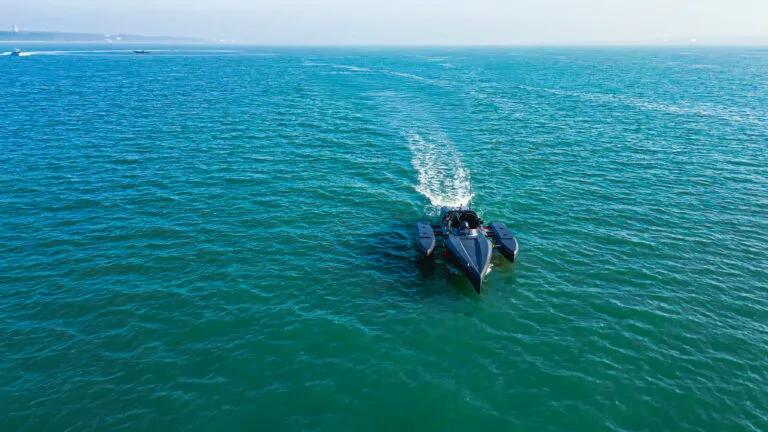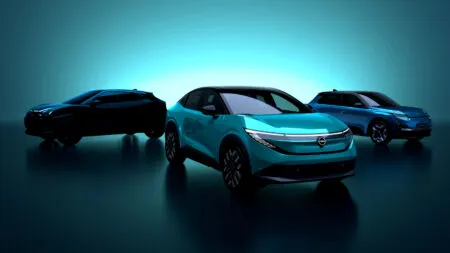Chartwell Marine has launched an electric foiling high-speed trimaran demonstrator as part of the UK’s efforts to decarbonize maritime transport. The vessel, developed with support from Solent University and Newcastle Marine Services, entered sea trials on Southampton water this month following a £1.86 million grant from the UK Government’s Clean Maritime Demonstration Competition.
The TriFoiler features a lightweight trimaran hull with a fixed main foil and an actuating foiling rudder, designed to reduce energy consumption while maintaining speed. The vessel’s battery system is strategically placed in the sponsons, away from passenger areas, to enhance safety and maximize onboard space.
Chartwell Marine’s Managing Director Andy Page emphasized the project’s priorities, stating, “We believe that the future of pure-electric commercial vessels lies in innovative, low-drag hull forms. However, first and foremost, service reliability must be the priority.”
The month-long sea trials will collect crucial data on the vessel’s performance across various maritime conditions. Neale Ryan from Innovate UK noted that the project “embodies what CMDC was created for — demonstrating practical, scalable clean maritime technologies in real world conditions.”
If successful, the trials could pave the way for a full-scale 24-metre ferry capable of carrying 40 passengers at speeds up to 28 knots. The project is part of the UK SHORE program, which aims to support maritime decarbonization with £236 million in funding through 2026.
Chartwell Marine plans to publish the trial findings at the end of April, potentially opening the door to future commercial applications on Southampton water and beyond. The demonstrator represents a significant step in developing zero-emission maritime transportation technologies.





